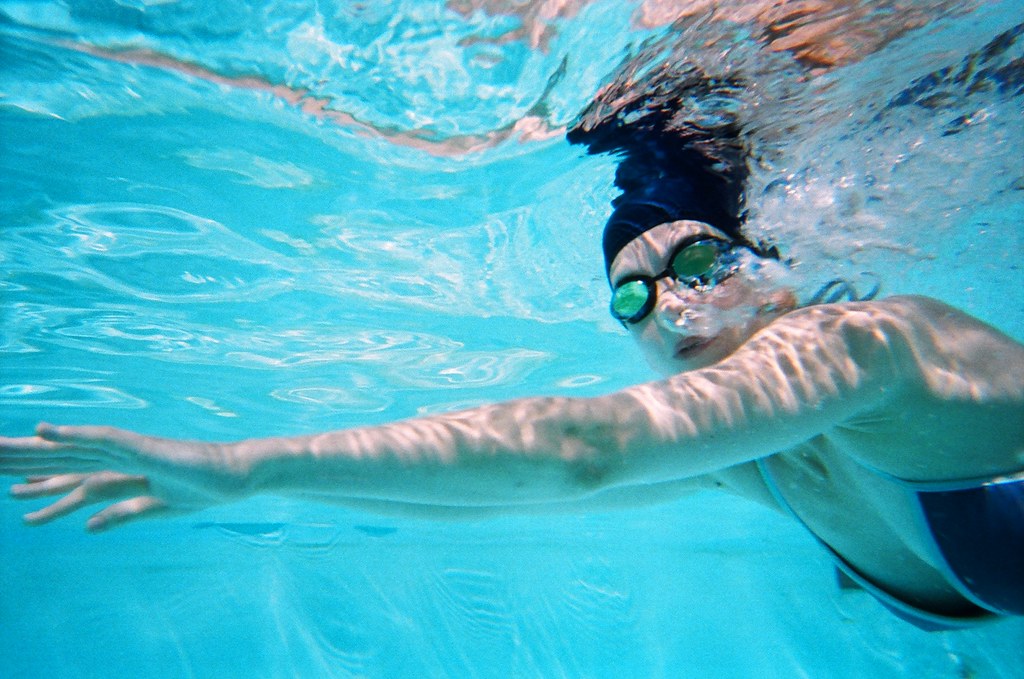
| I always resented the lack of feedback in both learning and teaching. As a student, it is not always easy to be sure how well you grasp the concepts of the course, and what are the expectations of your teacher. As a teacher, it is always difficult to know what expectations to have, and to evaluate the effectiveness of one's teaching. I thought about this at my swimming lesson this morning (the water is much cleaner, I can see at 12 meters now, if not at 25): applying this idea of feedback to swimming lessons rather than classroom makes sense because it is much easier to measure the speed and endurance of a learner in swimming than in mathematics, and hopefully it could be generalized later to other courses, including courses in the classroom. |
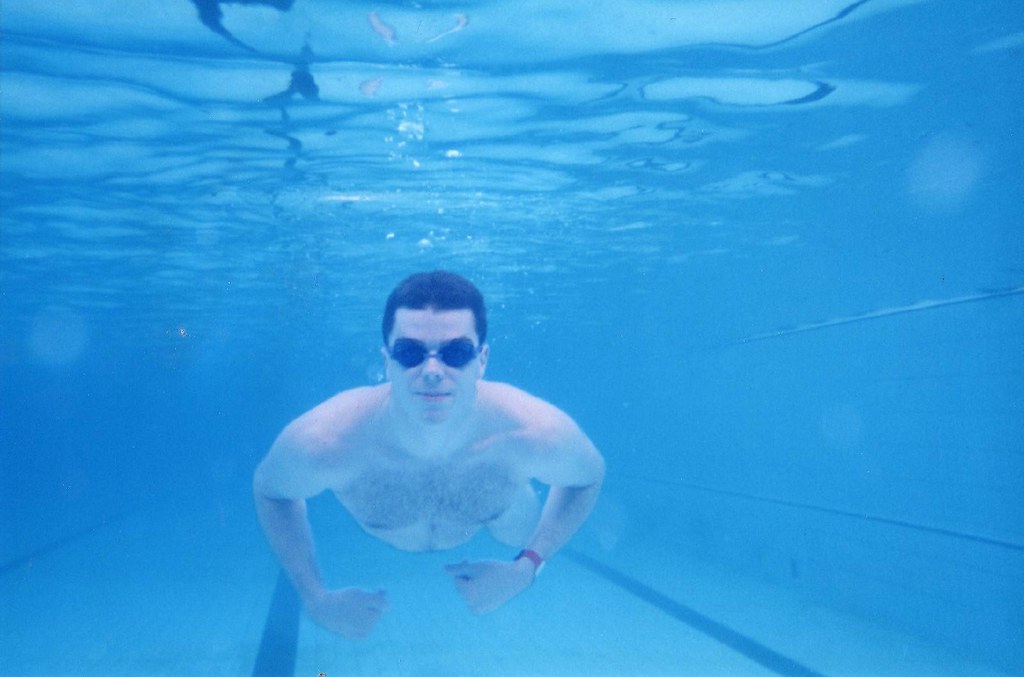
| Measuring and recording the speed and endurance of each student would be quite easy and cheap using a RFID tag, for instance on the bracelet holding the keys of your locker, or on your goggles or cap (no technology is evil, only the use we make of them: this seems to be a very moral use of RFID tags!), and captors at each end of the bath (students only rarely stop in the middle, but take pauses at the borders). |

| Recording the type of swim performed is a bit more tricky, but since students follow instructions from the teacher (and regularly forget them), having the teacher give the instructions (three lines of crawl, one of brass) via the computer solves elegantly the problem (the display could be made of just a few leds per student) |
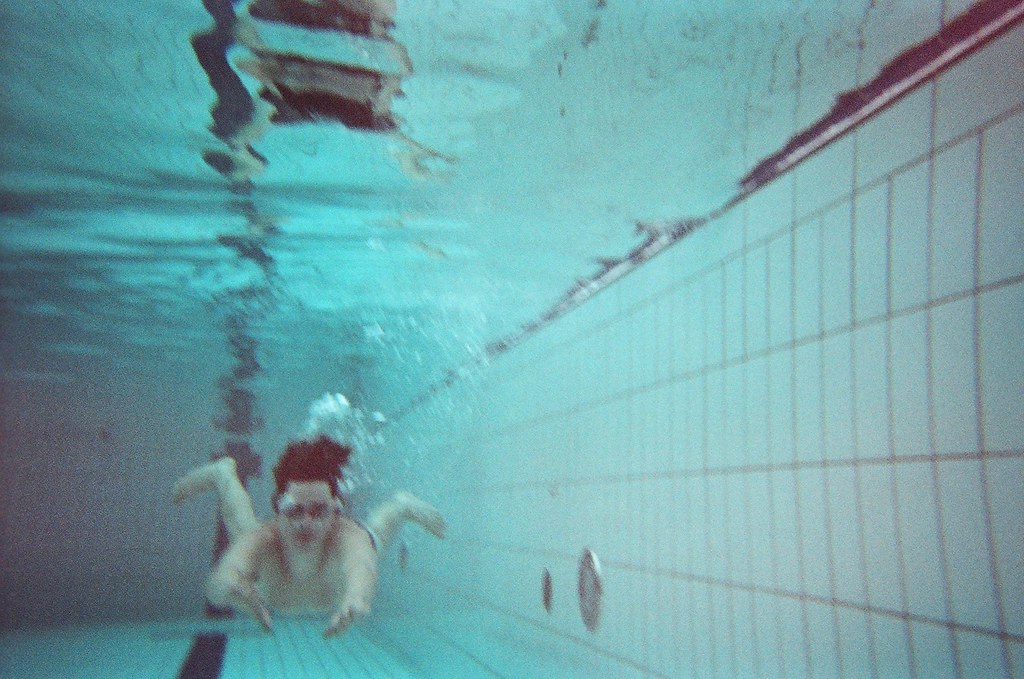
| Having all this data recorded by a computer would give instant feedback to each student (e.g. how well he/she performs using one type of movement versus another one) and also a longer term estimation of his/her progress lesson after lesson, serving as an additional motivation to learn. It would also give feedback to the teacher, who can consider the distribution of all the progresses of his/her students, compare it with other teacher and reconsider his pedagogy. |
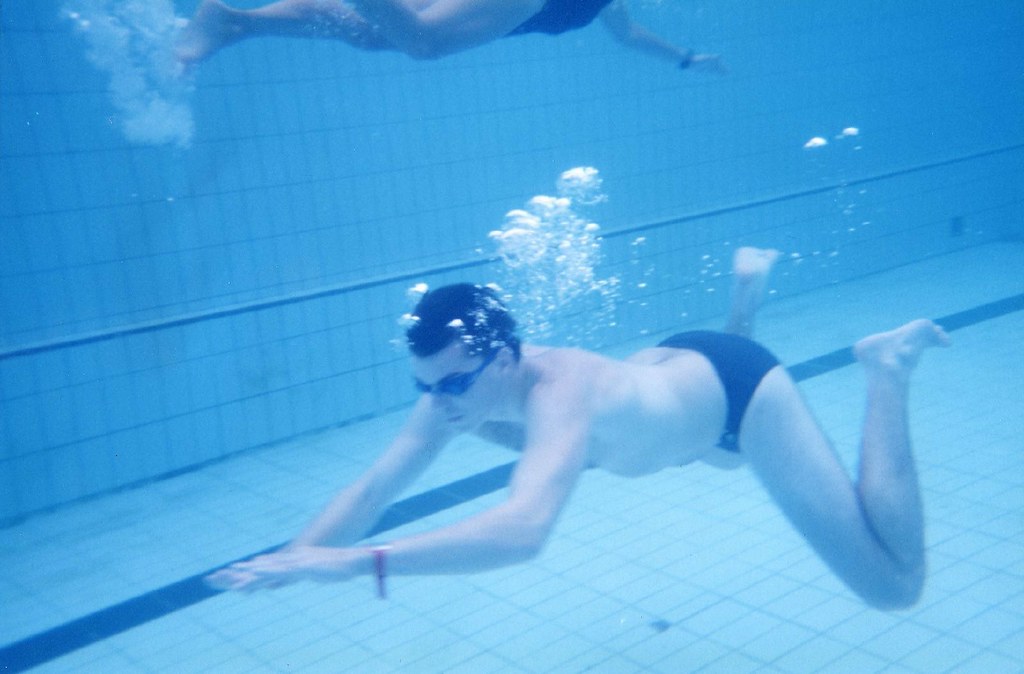
The price of such a project would be quite minimal:
|
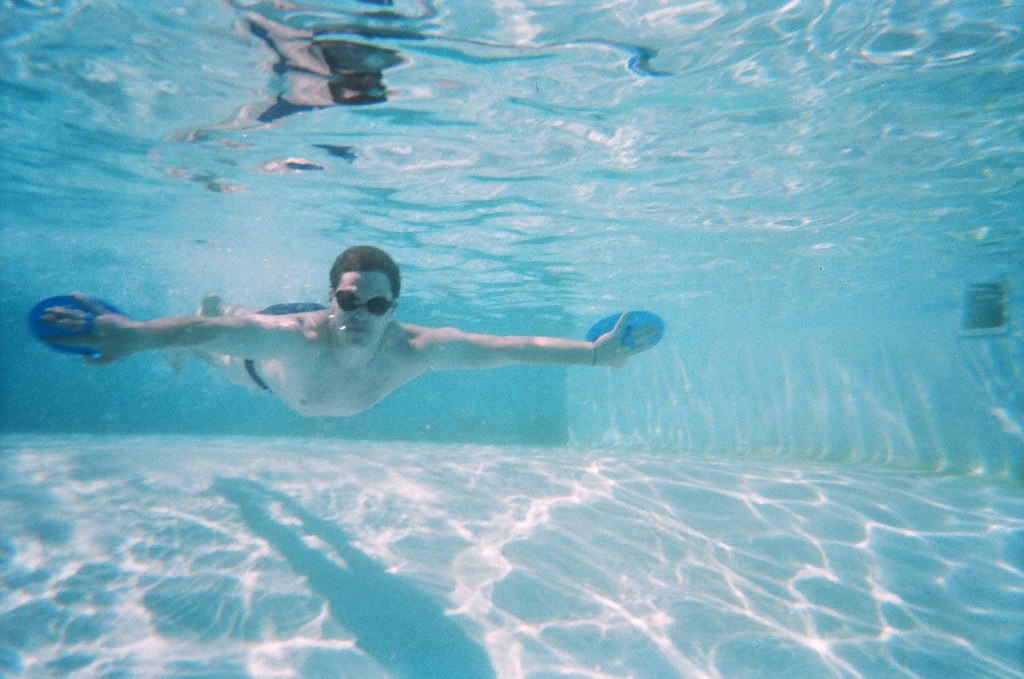

6 comments:
You are assuming that every student wants to know how he is performing at every single instant. Which is equivalent to bringing the stress of the exam to the course and maintaining it perpetually. It might be good if your set of student is highly competitive, but you might loose a good half of them for whom the goal is to be good enough at the end of the course, which is evaluated by a simple traditional exam. I personally both as a teacher and as a student would hate such perpetual oppression by the performance. Many times we're better left not knowing for some time.
If you want to record students performance you don't need anything that complicated either, a simple underwater camera put at each end of the pool could just video the entire session and some quite simple image analysis software could put timestamps for people reaching each end. That step could be done offline. That way you don't need RFID, you don't need underwater laptop, you just need an image recognition software tuned for your specific problem (and this exists in the videosurvelliance world for years) and 2 cameras (which you might even be able to put outside the water).
Desole ;).
> I personally both as a teacher and as
> a student would hate such perpetual
> oppression
I always was convinced about the need to separate the feedback from the testing (for many reasons, let's keep the discussion for a later post). There is the possibility that such a system would be used by the administration for testing (for the learner, but most likely for the teacher), when its purpose is pure feedback. But then, if the administration is bad they can also not build such a system to begin with.
In such a system the course must be about instructing the student to test a set of different techniques (e.g. for crawl, put arms flat on the water or dive them as a spear, fold the legs while beating or keep them straight), and giving the learner the information so that he can decide by himself of the right move to use.
This is not only about learning how to swim, but also about learning how to learn (and how to teach)!
> If you want to record students
> performance you don't need anything
> that complicated
Underwater cameras are a good idea, I did not think about it. I realized after reading this post that only two receiver are needed: then the RFID solution is definitely cheaper, simpler and more robust than digital cameras, I think.
> Desole ;).
"Pas de quoi", I am testing my ideas here before potentially forwarding it to the administration: any criticism I get before this step is an asset... And those ideas will apply outside of the swimming pool too!
It doesn't matter whether it is going to be used by the administration for testing. Right now it's a question of habit, feedback in the mind of many student and just many people is perceived as an evaluation. I know enough people that will treat any form of feedback as an evaluation and a judgement to say that instant feedback on your learning process is actually a risky path. It is ok for fast learners and people that accept criticism and imperfection easily, but for a large amount of people it is just the opposite of the right way to do it.
If it is to give feedback to the teacher that's another thing, but it's probably best if the students are not really aware of it anyway so they'll behave naturally.
Water is probably transparent enough that you can do it with a single video camera outside the water. Recognition of the person can probably be color based, provided you have a human validation behind. If you want to automate the tracking fully I agree that RFID is simpler than face recognition and color tracking even if the second works really well in pretty much any modern consumer camera (you can have the camera remember the names associated to each of its face profile and it will recognize the people automatically from then).
But on the other side a well placed cheap 200$ camera (or a high rez webcam on a laptop) is a lot simpler to maintain than any other system :).
> Right now it's a question of habit
I really don't buy this type of arguments. At best it argues to apply the suggested changes to the swimming courses for primary school students. Of course any such change must be done incrementally and with a lot of explications, so that people can adapt. But the fact that a new education technique is "too" different from previous one is not a reason not to test it: fundamental improvements require fundamental changes.
> Water is probably transparent enough
I was there this morning: you cannot even distinguish the border of the swimming pool from the center, let alone distinguish facial features...
The prof allowed me to bring my underwater camera, I will give it a try next Tuesday. I need to find a good Tuba by then to stay more comfortably underwater!!!
very interesting idea.
for statistical purposes, the system could be working all the time, the swimming pool administrator publishes a "most common defects and improvements seen in this swimming pool" based on automated data analysis and pattern-recognition technics....
people will begin to be interested and will ask to be personally monitored :-)
---
rather than struggling against people hydeosyncrasia, i suggest you turn to swimming training sessions for athlets, they will be a lot more open to test your ideas.
i suggest live feedback is given to the swimmer (even if you don't like live feedback :-) in the form of acoustic underwater signals, but this is appliable to one swimmer at a time in the swimming pool, unless you use multiplexing :-) or a special frequency/rhytmic code signal for each swimmer. this would help concentration too.
there are strategies for signals to be associated to monitorized parameters i don't discuss here in public.
Thanks Marco. I am in touch with swimming profs at the university level, and already they are interested. The main thesis for me is to prove that such feedback can be democratized and does not need to be reserved to an elite which can afford to pay for personal training, so I don't want to go to top-level competitors...
Post a Comment